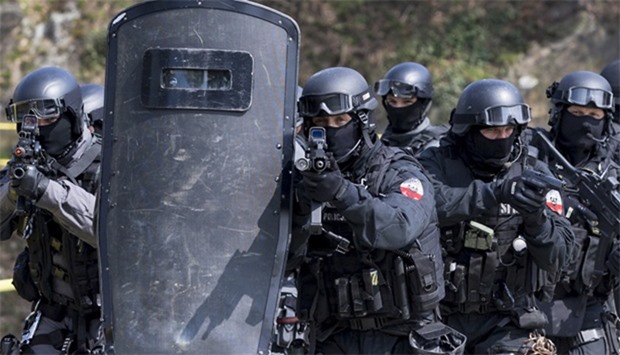Plans for the new law, which would allow increased surveillance of foreigners, came just days after bombings at the Brussels airport and metro, which killed 31 people and left 300 injured and were claimed by the Islamic State group.
Fellow EU member Hungary also unveiled a draft package of anti-terror measures on Thursday, ahead of a meeting of EU interior and justice ministers in Brussels, following Tuesday's attacks.
‘We'll present this bill for government approval in early April, so that parliament may examine and adopt it in May,’ Interior Minister Mariusz Blaszczak told reporters.
He said the goal was to have the measures in place before a NATO summit on July 8 and 9 and World Youth Day, with Pope Francis's attendance, from July 27 to 31 in the southern city of Krakow.
‘We can see how real the threat is against regular people, who have become the target of terrorists. We have to draw conclusions from this,’ added intelligence service coordinator Mariusz Kaminski.
He said the new law would allow for the prolonged detention of individuals suspected of terrorism, the possibility to immediately expel foreigners and the closing of borders.
Jaroslaw Kaczynski, the head of the governing conservative Law and Justice (PiS) party, for his part called on the opposition Thursday to dial down the political bickering ‘until after the pope's visit’, given the ‘exceptional situation in the West and Russia's aggressive policies’.
Poland has been in political crisis since the PiS won the October election after eight years in opposition and introduced controversial judicial and media reforms that have drawn much criticism from the opposition and regular citizens.
On Wednesday, Prime Minister Beata Szydlo said Warsaw would not take in its share of migrants under an EU plan.
‘After what happened in Brussels yesterday, it's not possible right now to say that we're OK with accepting any number of migrants at all,’ she told private television Superstacja.
Thousands of migrants ‘come here only to improve their life conditions,’ and among them ‘there are also terrorists’, she added.

